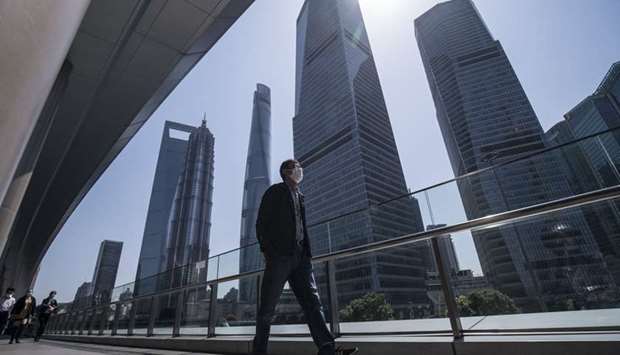The Chinese government abandoned its decades-long practice of setting an annual target for economic growth amid the storm of uncertainty unleashed by the coronavirus pandemic, and said it would continue to increase stimulus.
Speaking Friday morning at the National People’s Congress in Beijing, Premier Li Keqiang delivered an annual policy address that laid out a renewed focus on maintaining employment and investment.
Against a backdrop of escalating tensions with the US, Li said Beijing remains committed to implementing the terms of the ‘phase one’ trade deal.
Li Keqiang on May 22 With more than $500bn in infrastructure bonds to be issued this year and more monetary easing on the horizon, China is trying to cement a fragile domestic recovery without indulging in the kind of debt blowouts seen in the US and Europe.
The world’s largest exporter is therefore still reliant on other countries reining in the pandemic and on a reboot of global trade.
“We have not set a specific target for economic growth this year,” Li said, speaking in the Great Hall of the People. “This is because our country will face some factors that are difficult to predict in its development due to the great uncertainty regarding the Covid-19 pandemic and the world economic and trade environment.”
Shifting away from a hard target for output growth breaks with decades of Communist Party planning habits and is an admission of the deep rupture the pandemic has caused.
Economists surveyed by Bloomberg expect China’s economy to expand just 1.8% this year, its worst performance since the 1970s.
At the same time, Li gave a precise figure for the targeted budget deficit, widening it to more than 3.6% of gross domestic product.
Including the issuance of special bonds, that brings a broader measure of the deficit to more than 8%, according to Bloomberg Economics.
Analysts including Goldman Sachs Group Inc economist Yu Song said the package was less aggressive than expected.
Market sentiment was overshadowed by the announcement Friday that Beijing would impose national security legislation on Hong Kong, risking further confrontation with the US.
The CSI 300 Index fell 2.3% on Friday, its worst reaction to the opening of the country’s annual National People’s Congress since the stock benchmark started in 2005.
“Setting a target in such an uncertain economic environment would have been risky. Abandoning the decades-long tradition relieves the government of the straitjacket the annual target placed on economic policy. The challenge now will be to effectively guide expectations in the absence of the GDP target,” said Bloomberg economists.
Li said the government is setting a target for urban job creation of more than 9mn jobs, lower than the 2019 target of around 11mn, and a target for the urban surveyed unemployment rate of around 6%, higher than 2019’s goal, according to the document. The government’s official measures don’t capture the full extent of unemployment caused by the pandemic, which has hit both manufacturing and services hard.

A pedestrian wearing a protective mask walks through the Lujiazui Financial District in Shanghai. Economists surveyed by Bloomberg expect China’s economy to expand just 1.8% this year, its worst performance since the 1970s.
